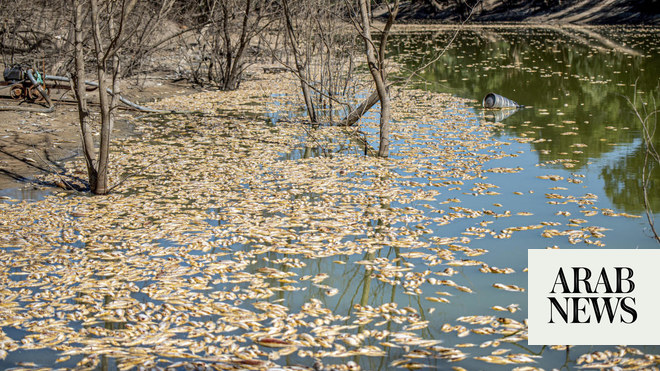
An outbreak of 50,000 Tasmanian farmed salmon could potentially “pollute” the marine environment, according to local environmentalists.
The fish rushed to freedom after a fire melted part of their enclosure on Monday morning, and while the company involved said it did not expect the fugitive fish to damage the environment, others disagree.
“Escaped salmon typically don’t last long, unfortunately,” said the Huon Aquaculture chief executive, Peter Bender. “What the seals don’t get, the fishermen quickly do.”
But Peter George, the president of Neighbours of Fish Farming, said claims the outbreak was harmless were “nonsensical”.
“It’s like claiming a sewage spill is all good because it releases nutrients into the food chain.”
“Huon Aquaculture’s spin is intended to make this environmental pollution spill look like nothing more than a boon to fishers and seals.”
Pene Snashall, the corporate communications and community relations manager at Huon Aquaculture, said she was confident that the escaped fish would not cause any damage to the local ecosystem, citing a 2018 Institute for Marine and Antarctic Studies report on escaped farmed fish.
Snashall said the report showed there was “limited evidence of feeding by the escapees on native fauna”.
“Farmed salmon generally don’t appear to feed on native species. While some fish did survive for some months, this did not necessary mean that these fish were thriving.”
George dismissed the company’s claims, saying the matter required urgent investigation to understand the impact on the local ecosystem.
“Beyond the immediate impact of salmon on the living marine environment, there is the long-term danger of salmon establishing in our river systems as has happened overseas.”
Snashall said the company did not have any plans to retrieve the fish, with the loss only representing under 1% of their current fish stocks.
“We grow these fish from eggs and nurture them at every step of the way. Seeing them lost at the final step is heartbreaking.”
The company said a fire burnt through around a third of the pen holding the salmon, including infrastructure just above the water, allowing the fish to mount a mass breakout.
It said it was still too early to “point to a definitive cause” of the fire.
“We have electrical equipment on our pens but in 35 years of farming we have never had an electrical fire on a fish pen so the cause has baffled us,” Bender said.
The company estimated that between 50,000 and 52,000 four-kilogram fish escaped because of the fire.
Environment Tasmania has said that salmon farming companies need to improve their practices.
“We understand that not everyone is in love with salmon farming and we respect that people have differences of opinion,” Snashall said.












